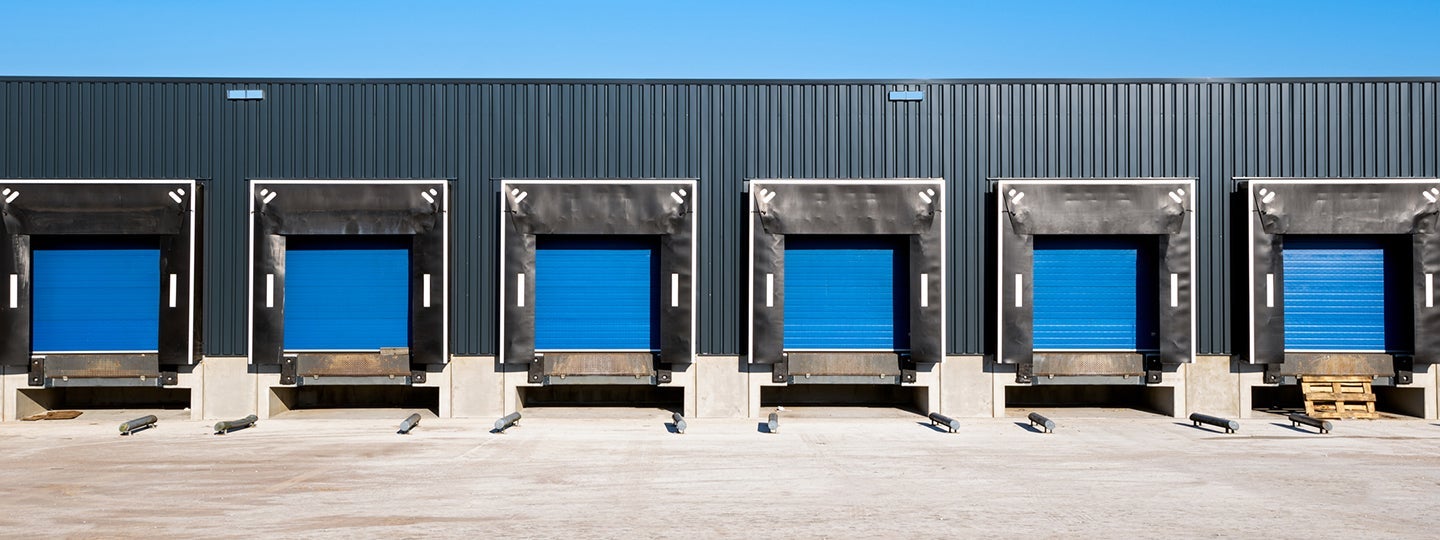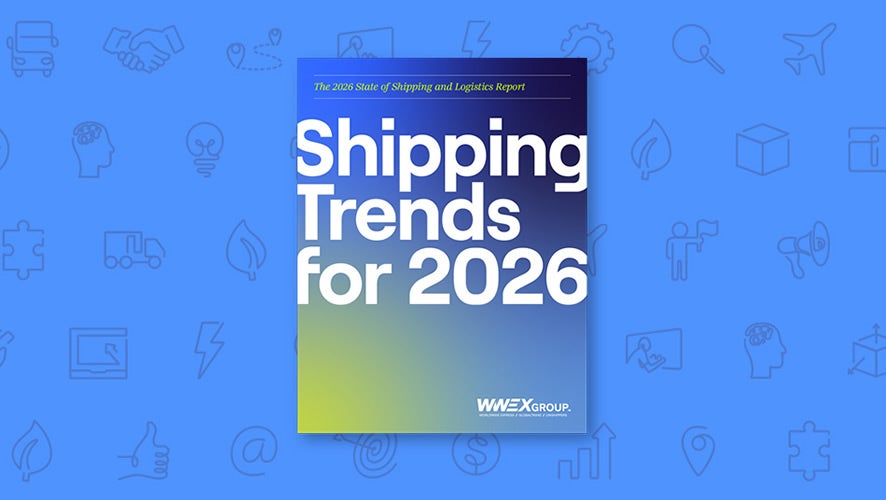BLOG POST
How to Avoid Common Accessorial Fees & Charges

Reading Time: 9 minutes
When booking freight, many shippers are surprised to see that their final invoice is higher than the original quote. The difference often comes from freight accessorial charges — extra freight fees carriers apply for services or equipment needed to complete a delivery.
These additional freight charges vary by carrier and are usually added after a shipment is completed, which can make budgeting for freight shipping difficult. However, by understanding the most common charges, you can anticipate costs and plan ahead.
In this massive guide, we'll break down freight accessorial charges that apply to both less-than-truckload (LTL) freight and truckload (TL) shipping, explain why carriers assess them, and share strategies on how to manage and/or avoid them whenever possible!
Handling and Special Services
- Liftgate Service: If a pickup or delivery location does not have a dock, a liftgate may be required for freight weighing more than 100 pounds. Carriers apply a liftgate fee whenever this equipment is needed. If a driver arrives without one and the shipment must be rescheduled, additional freight charges are added for the delay. To avoid extra costs, always notify the carrier of liftgate requirements during booking, particularly for LTL freight, where multiple stops increase the risk of miscommunication.
- Inside Delivery: This freight accessorial charge applies when a driver must move cargo beyond the first access point (like a front door or loading dock). Tasks like pushing a pallet jack up or down a ramp, carrying items across a driveway or bringing freight inside a hallway require extra labor and time. Carriers bill an inside delivery fee to cover these efforts.
- Residential Delivery: Delivering to a residence adds significant complexity. Drivers must navigate narrow streets, limited parking and longer unloading times, all of which justify a residential delivery fee. These charges are common in LTL freight, since TL shipping rarely serves homes. Shippers delivering directly to consumers should account for this cost in their freight shipping budgets.
- Limited Access Pickup/Delivery: A limited access fee is charged when a location is difficult to enter, requires special clearance or delays the driver. Common examples include military bases, schools, prisons, hospitals, malls, construction sites and convention centers. Drivers may face restricted hours, security checks or time spent finding the consignee. While sometimes unavoidable, this freight fee can often be reduced by providing carriers with detailed instructions and contacts in advance.
- Metro Pickup/Delivery: Deliveries in congested metropolitan areas often trigger a metro delivery charge. Traffic, tight city streets, limited loading zones and parking restrictions increase delivery times. In some cases, freight must be transferred to smaller vehicles like sprinter vans or box trucks to complete final mile delivery. Cities such as New York, Chicago, Los Angeles and other large metropolitan areas are especially known for these freight accessorial charges.
- Tradeshow/Exhibition Shipments: Trade show freight requires precise scheduling to align with setup and teardown windows. Drivers may need to wait, handle booth materials or coordinate with event staff. Carriers treat these shipments as premium white-glove services, applying a tradeshow delivery fee for the added coordination. Businesses that regularly attend events should budget for these specialized freight fees.
- Blind Shipments: Blind shipping conceals the identity of the original shipper from the consignee. The product appears to come directly from your business, even if it originated with a supplier. While this provides brand control, it requires special documentation and processing. Carriers apply a blind shipment fee for the extra coordination. For many resellers, the benefits outweigh the cost.
- Driver Load/Unload: Standard loading and unloading are typically handled by warehouse staff. However, when drivers must provide physical labor — such as lifting freight, repositioning pallets or operating liftgate equipment — carriers add a driver load/unload fee. This accessorial reflects the additional effort beyond the driver's primary role.
- Packaging Fee: Shipments that are not adequately packaged for transit may need additional preparation. Carriers may palletize loose items, add shrink wrap or secure loads with straps. The packaging fee covers materials and labor to ensure freight moves safely. Shippers can avoid this freight accessorial charge by properly packaging freight before pickup.
- Pallet Jack Fee: When freight must be moved with a pallet jack instead of forklifts or dock equipment, carriers charge a pallet jack fee. This manual handling requires more time and effort, which is why it is passed on as an extra freight fee. Facilities without docks or powered equipment are the most common sources of this charge.
- Tarping Fee: Freight moved on flatbed trailers may need tarps for protection against weather or road debris. Carriers apply a tarping fee to cover both the heavy-duty tarps and the driver's time to secure them. This accessorial is particularly common in construction, agriculture and heavy equipment freight shipping.
- Sort & Segregation (LTL) / Driver Assist (TL): In LTL freight, multiple shipments share one trailer, and dock workers may need to sort and count cargo to ensure accuracy. This process results in a sort and segregation fee. In TL shipping, drivers may sometimes assist with sorting or verifying pieces, which also leads to an additional charge.
- Extra Labor/Helper/Lumper: At many facilities — especially grocery distribution centers — third-party workers called lumpers handle loading and unloading. Carriers pay these workers, then pass the cost on as a lumper fee. Because these charges are unavoidable at many sites, shippers should plan for them as part of normal freight charges.
Time-Based Charges
- Detention Fee: When shippers hold drivers at a facility longer than scheduled, carriers apply a detention fee (also known as dwell time). This freight accessorial charge compensates for the driver's lost time and inconvenience. If a delay is expected, it may be possible to negotiate extended free time with the carrier to avoid or minimize the freight fee.
- Layover Fee: A layover fee is charged when a driver must wait until the next day to pick up or deliver freight. Because layovers prevent the driver from accepting other shipments, they can be costly. Rates often vary for refrigerated, flatbed or other specialized freight shipping equipment due to higher operating costs.
- Truck Order Not Used (TONU): If a shipment is canceled after the carrier's cutoff time, the shipper is charged a TONU fee. This covers the lost revenue from holding a truck that could have been used elsewhere. With refrigerated, flatbed or other specialty equipment, the costs are higher to offset additional lost profit.
- After-Hours/Before-Hours Deliveries: Businesses with unique schedules sometimes require shipments to arrive outside standard operating hours. Carriers can accommodate, but they apply a time-based freight fee for the added logistics, coordination with consignees and security needs that come with these off-hour deliveries.
- Advance Notification Fee: Certain facilities require carriers to call ahead before delivery. A driver must contact the consignee, confirm delivery details or secure access codes. Carriers charge an advance notification fee to cover this extra coordination, which helps ensure freight is received on time.
- Redelivery Fee (LTL): In LTL freight, if a consignee refuses a shipment or no one is available to accept it, the carrier must attempt delivery again. Each attempt adds a redelivery fee, which can be expensive since redelivery disrupts multi-stop LTL routes and delays other shippers' freight.
Weight & Dimension Adjustments
- Oversized Freight: Shipments that exceed standard size are classified as oversized or overlength. Carriers apply an oversize freight fee to cover state permit costs, escort requirements and specialized equipment. These freight accessorial charges are more common in LTL freight, where oversized shipments disrupt trailer space. In TL shipping, the costs are often included in the quoted rate, but shippers should confirm upfront. Oversized loads are common in industries moving heavy equipment, building materials or machinery.
- Reweigh & Reclassification Fees: For LTL freight, carriers rely on the bill of lading (BOL) to classify shipments by weight, density and handling requirements (freight class). If the information is inaccurate, the carrier may reweigh the cargo and assign a new classification code, resulting in a reweigh or reclassification fee. These freight charges raise costs and disrupt efficiency. Shippers can avoid them by weighing freight carefully, assigning the correct freight class and completing paperwork accurately. Understanding freight classification basics is one of the most effective strategies to avoid freight accessorial charges in LTL shipping.
Route and Equipment Adjustments
- Fuel Surcharge: Carriers apply a fuel surcharge based on the weekly National U.S. Average on Highway Diesel Fuel Price report. This freight accessorial charge protects carriers if fuel prices rise between booking and delivery of an LTL freight or TL shipping load. While unavoidable, monitoring fuel price trends can help shippers plan for this cost.
- Deadhead Miles Fee: Deadhead miles occur when a truck is driven empty after a delivery — wasting fuel, time and equipment capacity. Carriers may assess a deadhead fee, especially when serving rural areas with little outbound freight. This charge mainly affects TL shipping, as LTL freight is optimized to avoid empty returns.
- Additional Stops: Shipments with multiple delivery points often incur an additional stops fee. Each stop requires unloading, verification and driver time. This is common in TL shipping, where a truck may serve several distribution centers or job sites. In LTL freight, carriers may charge if a single shipment requires multiple drop-offs.
- Reconsignment/Diversion Fee: If a shipment is rerouted after dispatch, carriers charge a reconsignment or diversion fee. This freight charge offsets the cost of extra fuel, lost time and rerouting. Confirming addresses at booking is the best way to avoid it.
- Corrected Bill of Lading Fee: Changes to a bill of lading (BOL) after tender — such as weight, class or delivery address — result in a corrected BOL fee. More common in LTL freight, this reflects the importance of accurate data for pricing and load planning. Remember, errors disrupt efficiency and lead to higher freight charges.
- Cross-Border Processing Fee: International freight shipping requires customs clearance, duties and regulatory compliance. A cross-border processing fee covers administrative filings and inspection coordination. Many shippers rely on customs brokers or 3PLs to manage this process.
- Customs or In-Bond Freight Fee: Carriers apply this fee for shipments moving in-bond (aka passing through a country without immediate customs clearance). It covers regulatory filings and documentation until freight reaches its final clearance point. In-bond shipping is often used to defer duty payments or consolidate loads.
- Storage Fee: When freight must be stored due to delivery delays and no arrangements were made in advance, carriers assess a storage fee, billed daily or hourly. Unlike warehousing, this is a short-term measure and often paired with redelivery charges.
Specialty Cargo Handling
- Hazmat Fee: Shipments containing hazardous materials require carriers to follow strict Department of Transportation regulations. Drivers and handlers must be trained and certified, and shipments need detailed documentation. Carriers apply a hazmat fee to cover added risk, compliance requirements and time spent managing these sensitive loads. This freight accessorial charge is standard for industries moving chemicals, flammables or other regulated products.
- Refrigeration Fee: Perishable items such as produce, dairy or pharmaceuticals require temperature-controlled shipping. Carriers use refrigerated (reefer) trailers, which consume more fuel and electricity than standard dry vans. The refrigeration fee offsets these higher operating costs and ensures cargo integrity throughout transit.
- Protect From Freeze (PFF): During cold weather, carriers may offer protect-from-freeze services for liquids, chemicals, food and pharmaceuticals. This may involve heated trailers, faster loading or optimized routing. The PFF fee protects product integrity and prevents costly damage from freezing conditions.
How To Minimize the Surprise of Freight Accessorial Fees
The most effective way to manage freight accessorial charges is through accurate communication and careful recordkeeping. Shippers can reduce unexpected freight fees by taking the following steps:
- Verify shipment details: Always confirm the correct weight and freight classification code. For LTL freight, list pallet weights individually to avoid disputes.
- Communicate special needs upfront: Notify carriers of requirements like liftgates, residential delivery or limited access before tendering. Include these expected freight charges on the bill of lading (BOL) for clarity.
- Review charges after delivery: Ask carriers to explain accessorials. You may be able to dispute unnecessary fees and prevent them from recurring on future shipments.
- Use third-party support: A 3PL provider or auditor can help review invoices, validate charges and flag billing errors.
Clear communication and auditing practices are the best strategies to avoid freight accessorial charges and protect your shipping budget.
Frequently Asked Questions About Freight Accessorial Charges
Use these FAQs as a quick review of the key points covered in our freight accessorial charges guide. You'll also learn how Worldwide Express can help you plan ahead and reduce unnecessary freight fees.
Take Control of Freight Accessorial Fees With Worldwide Express
Understanding and managing freight accessorial charges is essential to keeping your shipping costs predictable and your operations running smoothly. From detention and redelivery to residential or limited access delivery, these fees can add up quickly if not planned for in advance. Partnering with the right logistics provider helps you anticipate potential charges, improve cost control and keep your freight strategy on track.
Worldwide Express has more than 30 years of success in the logistics industry and helps thousands of shippers of all sizes move products with great efficiency. As part of the WWEX Group family of brands, we make up one of the largest and most diverse 3PLs in the industry, providing shippers with top solutions that help them succeed — whether shipping parcel or freight.
Ready to take the first step toward transforming your freight shipping strategy? Reach out today to request a custom consultation with a Worldwide Express shipping expert.





